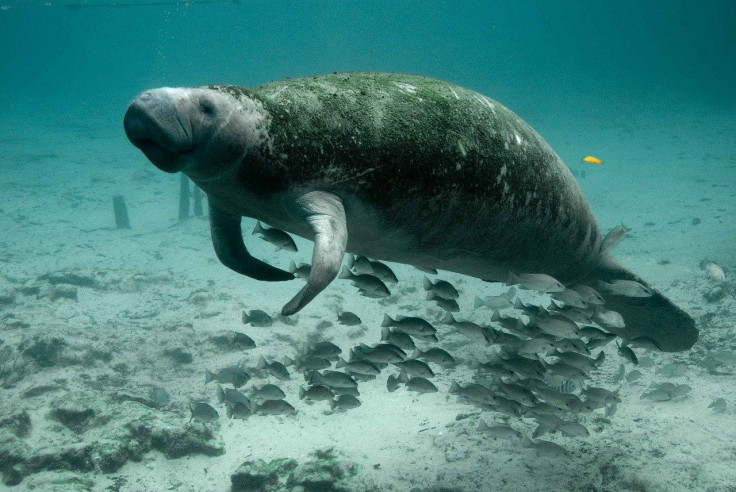Conservation Groups Take Legal Action Against EPA Over Record Manatee Deaths
KEY POINTS
- Florida has seen a record number of manatee deaths this year
- Three conservation groups filed an official 60-day notice of intent to sue the EPA
- The groups allege the agency failed to protect the manatees from water pollution
Environmental groups have taken legal action against the Environmental Protection Agency (EPA) over this year's record manatee deaths.
The previous record for manatee deaths in Florida was set in 2013 when 830 manatees died. That record was broken this year with more than 1,000 manatee deaths recorded in the state as of November. According to Earthjustice, a non-profit environmental law organization, this is more than double the average annual death rate over five years and represents 12% of all the manatees in Florida.
Much of this year's deaths were attributable to starvation, the organization noted in a statement Monday. Water pollution "fueled" the algae blooms that killed the seagrass, which manatees rely on for food. Earlier this month, authorities even approved the unusual move to feed the manatees amid the "unusual mortality event."
In the statement, Earthjustice noted that it is representing conservation groups such as the Center for Biological Diversity, Save the Manatee Club and Defenders of Wildlife as they issued a 60-day notice to the EPA over violations of the endangered species act for "failing to reinitiate consultation concerning the unusual mortality event for manatees in the Indian River Lagoon."
In the notice, the groups cited weak water quality standards that allowed pollution such as fertilizers and sewage to get into the lagoon. It is this waste that ends up killing the all-important seagrass.
"Congress enacted the ESA and CWA (Clean Water Act) to prevent such harms. These statutes require that EPA-approved water quality standards ensure the protection of water quality and threatened species such as the manatee," the notice read.
"However, the current estuary-specific numeric nutrient criteria fail to fulfill these mandates. New information shows that the current criteria suffer from lax enforcement, an inappropriately long trajectory to achieve compliance, and a failure to take into account the impact of legacy pollution," it continued.
The agency has 60 days to address the allegations in the letter before the groups file a lawsuit. This is a legal step that's required before filing a lawsuit against a federal agency, South Florida Sun-Sentinel explained.
BREAKING #Florida manatee news – We are representing @CenterForBioDiv, @savethemanatee and @Defenders in filing official notice today of intent to sue @EPA to enforce water quality to protect starving manatees. https://t.co/Mb4gzQH8se
— Earthjustice (@Earthjustice) December 20, 2021
"It is painfully clear that Florida isn't doing what's necessary to control the sewage and fertilizer pollution that's wrecking the Indian River Lagoon," Elizabeth Forsyth, Earthjustice attorney, said in the statement. "It's time for EPA to step in and enforce the Clean Water Act for the sake of the manatees and all the other creatures and people that rely on Florida's waterways. If watching manatees starve isn't the tipping point for the EPA to step in, I don't know what is."
"We have exhausted our options at the state level," Patrick Rose, an aquatic biologist and the executive director of the Save the Manatee Club, added. "It is up to the federal agencies who are ultimately responsible for approving these failed standards to step in and correct course before it is truly too late."

© Copyright IBTimes 2024. All rights reserved.






















